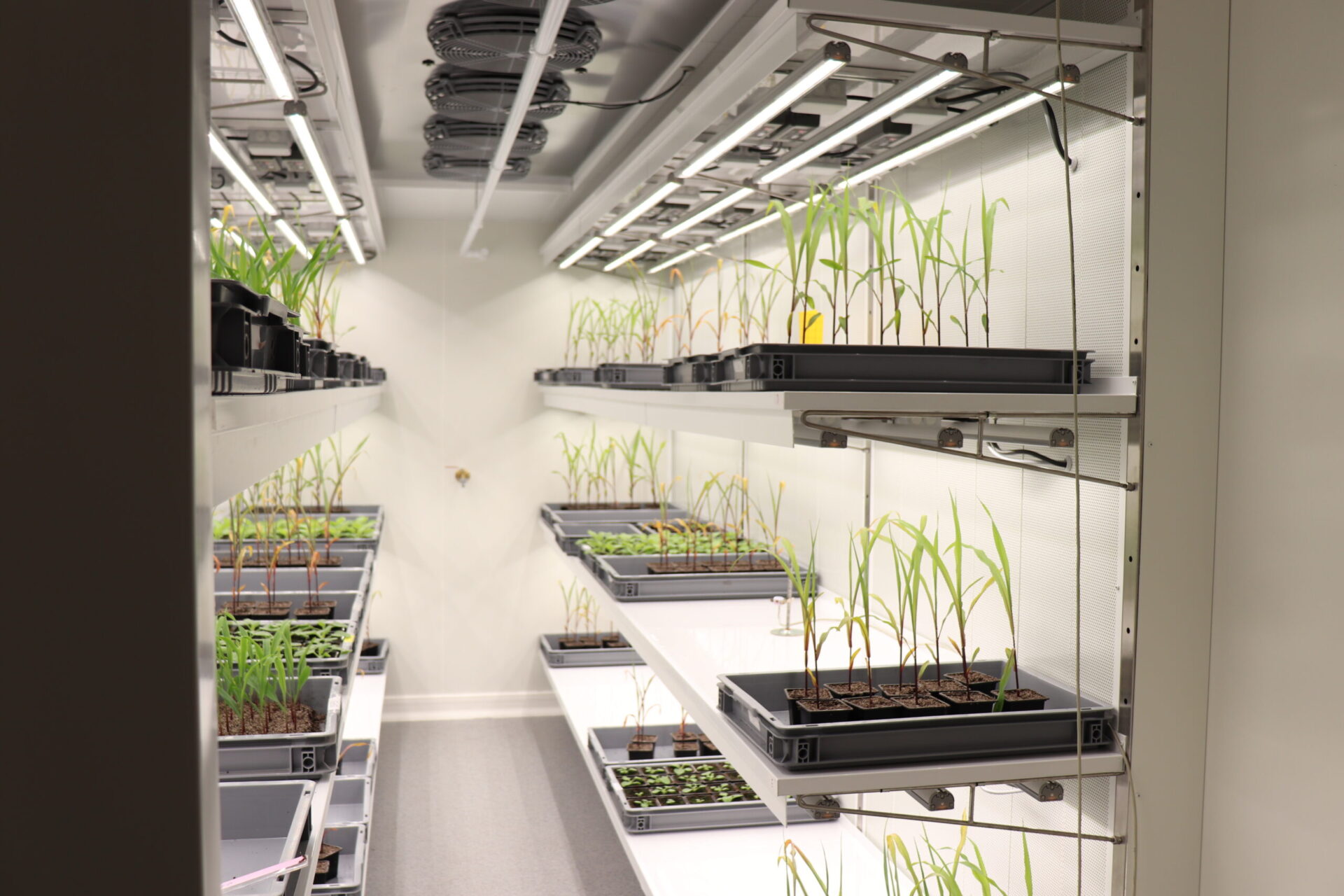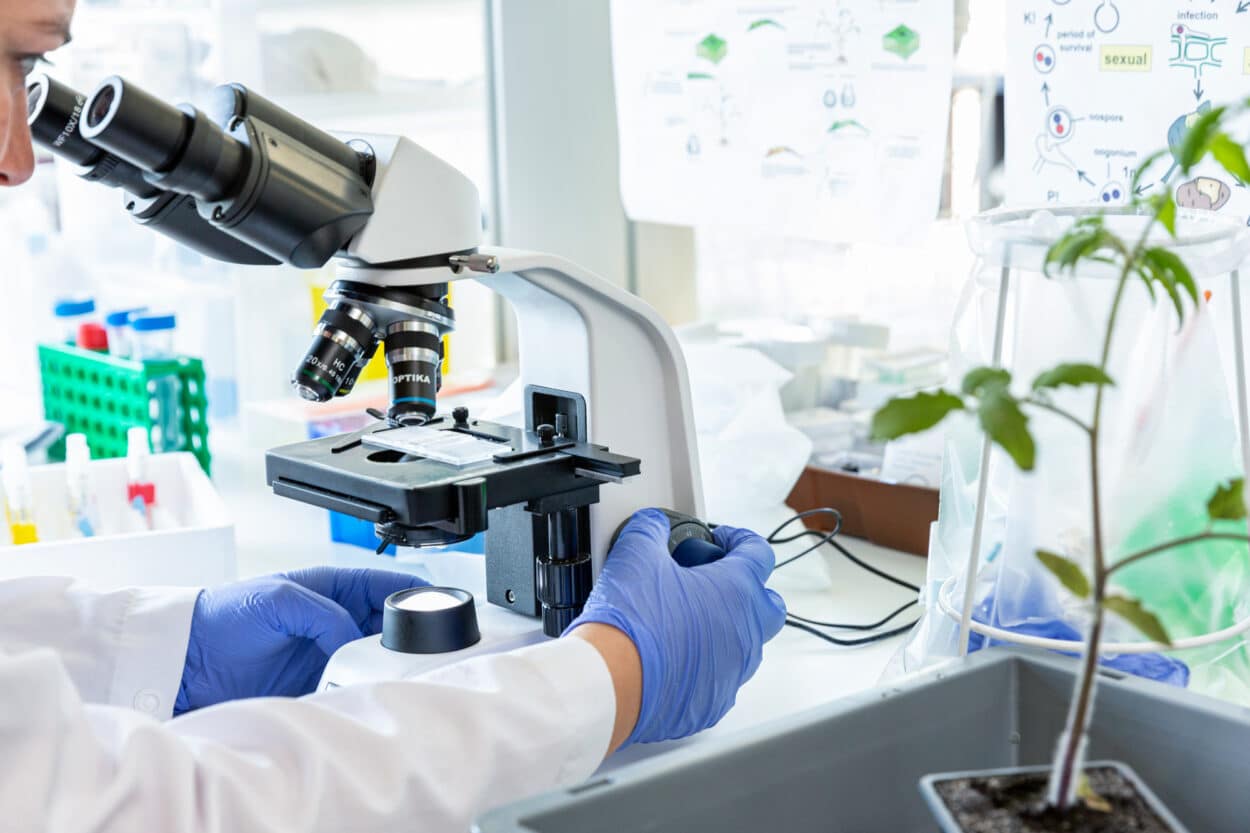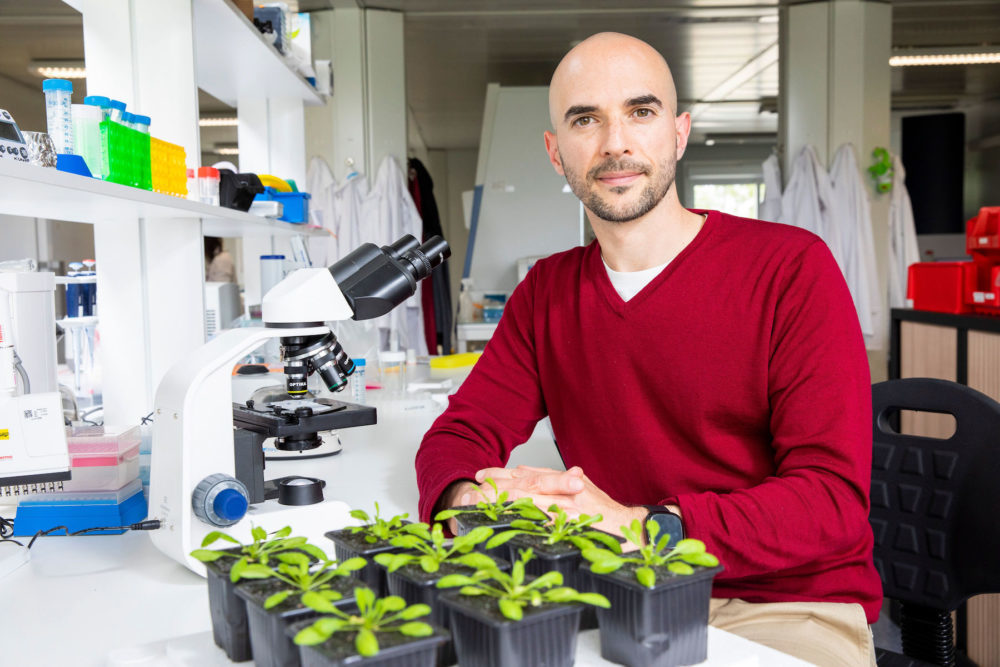Finding crop protection products that have the efficacy of traditional chemicals with the environmental footprint of a fully natural solution is no easy task.
In recent years, peptides and micropeptides have emerged as one promising option for achieving this.
“Micropeptides have a unique value proposition, combining new modes of actions, strong efficacy in the field, great safety profile, and affordable costs for farmers,” explains Thomas Laurent, co-founder and CEO of biotech startup Micropep, who caught up with AgFunderNews at the recent World AgriTech show in the UK.
Fresh off a funding round, Micropep, which has operations in France and the US, is now working to bring its crop protection products based on micropeptides to market, and has also just introduced a discovery platform to make the process of finding and developing solutions more efficient.
‘We need new modes of action’
Peptides lie between chemical crop protections and biologicals, in a class Laruent refers to as biochemistry.
“Biochemicals are typically molecules,” he explains. “It’s not like living organism, it’s compound, but one that can be produced by natural organisms.”
Peptides are made of natural amino acids, and different sequences of those can make various forms and functions, he adds. “At Micropep, we specialize in this very small portion of five to 20 amino acid peptide sequences. They are much smaller than bigger proteins but all made of natural amino acids that can be digested and degraded.”
The last couple of years have seen an increased interest in peptide-based crop protection solutions from the agriculture industry as demand to lessen chemicals grows and as many pure biologicals still struggle to achieve efficacy.
“We need new mode of actions (MOAs),” says Laurent of crop protection products. “Chemistry has provided a lot of beneficial products, but with some concerns, obviously. There’s more and more and more resistance [to existing solutions] because farmers have been using the same ones again and again.”
Peptides provide a new pathway to overcoming that resistance while still enabling farmers to control pathogens. Because they biodegrade, peptides can also be a “cleaner” option for the environment.
Finally, “the advantage we found working with the smaller [molecule] is that they can penetrate more easily in plants than bigger, more structured compounds. And at Micropep, we also found a way to produce [these molecules] cheaply,” says Laurent.

Peptides vs. biologicals
Importantly, peptides may also be able to provide cleaner crop protection free of some of the issues that have hampered pure biologicals, which are difficult to transport and have limited stability once in the field.
“Usually when you work with microbes, you have a living organism that is actually producing some compounds during its lifecycle that have an effect,” explains Laurent. “The challenge with the microbe is that it’s an even more complex organism to understand and work with and optimize. The big challenge has been on the formulation stability of those compounds.
“The advantage with biochemicals like peptides is you know exactly the compound you’re looking at, and you can optimize it, and it’s easier to stabilize. So peptides don’t have many issues with UV stability, or things like that.”
Where the funding will go
The new round, $29 million, brings Micropep’s total Series B funding to $40 million and overall funding to more than $51 million.
Zebra Impact Ventures and BPI Green Tech Investment led the round, which also saw participation from all existing investors: Fall Line Capital, FMC Ventures, Sofinnova Partners, Supernova Invest, and IRDI Capital Investissement.
To more rapidly find new peptides for crop protection products, Micropep has built a screening platform called Krisalix, which the company says can assist researchers in efficiently pinpointing new solutions. The tool, measures efficiency, stability, and production feasibility of potential solutions “by combining proprietary micropeptide design algorithms with a unique suite of bioassays.”
Part of the Series B funding will go towards “strengthening the platform, getting more leads to the pipeline and expanding the library of peptides,” says Laurent.
New capital will also help Micropep in its process to submit its first molecule, for a biofungicide, to regulatory bodies at some point in 2026.
In many countries, the current regulatory process for biologicals and biochemicals is cited as one of the sector’s biggest challenges to greater adoption.
Part of the regulatory process is about proposing a good enough package to regulators, says Laurent. “That’s really on us [as a company] to do the best job we can on that.”
Less in the company’s control are regulatory timelines, which vary from country to country.
“In [places] like Brazil, the reviewing process could be around 20 to 24 months,” says Laurent. “The EPA used to be 18 months but is now more like 24 months because of staffing issues.”
In Europe, the review process could take as long as 44 months.
“One of the challenges with Europe is that the drivers for new solutions are very strong [because] have compounds that are banned in Europe. Demand from farmers is there, but it takes so long.”

Focus on the active ingredient
The other challenge moving forward will be developing products within the fragmented nature of the agtech landscape.
“Different farmers, different countries, different behaviors, different go to market,” says Laurent. “And tons of products. You have more than 600 chemical active ingredients. How you get access to as many farmers as possible with limited resources?”
Startups can do that “by focusing on the active ingredient aspect of the business and working with partners who can buy the active ingredients and develop different products with them.”
“The only way to make that strategy successful is if your cost is low enough that you have someone else that can buy your active ingredient and formulate it. I think we have a path to achieve that.”





